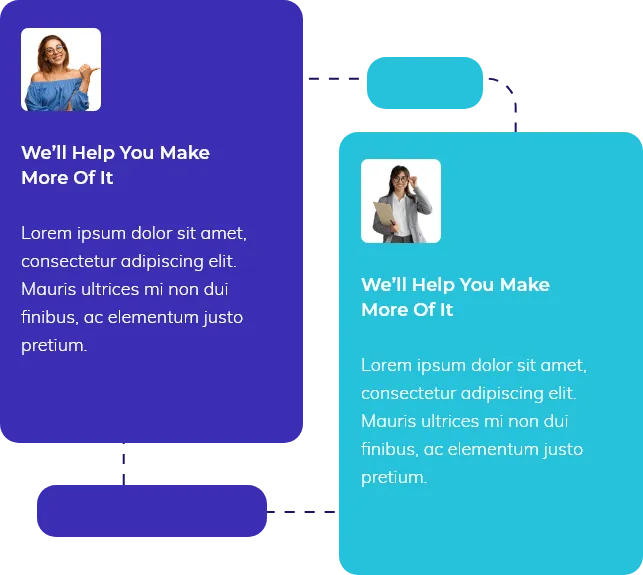


We’ll Help You Make More Of It
Committed To Helping Our Customers Succeed
Lorem ipsum dolor sit amet, consectetur adipiscing elit. Mauris ultrices mi non dui finibus, ac elementum justo pretium. Pellentesque porta elementum efficitur. Fusce nisl justo, eleifend sit amet dui in, porta ornare arcu.
Mauris ultrices mi non dui finibus, ac elementum justo pretium. Pellentesque porta elementum efficitur.
Fusce nisl justo, eleifend sit amet dui in, porta ornare arcu. Praesent eu tortor at
Trusted By Our Clients
★★★★★

Want a head start (or catch up)?
Feeling lost in the college application maze? Don't fret! Grab The College Timeline video and PDF to keep you on the path to success!
Check Out the Latest Advice

Crucial Common App Pitfalls: The 5 Biggest Mistakes to Avoid

Are you ready to successfully navigate the Common App minefield and avoid those pitfalls that could derail your dreams? If so, you’re in the right place! This blog post is packed with insights on the biggest mistakes students make on the Common App, and more importantly, how you can avoid them.
But first, a quick primer for those new to the Common App. The Common Application, or Common App, is designed to streamline the college application process by sending one application to multiple schools instead of submitting individual applications to each school. However, it's important to remember that not all schools use the Common App, and other states and systems, like the University of California system, have their own processes. Most students usually end up dealing with at least two types of applications, if not more.
Now, let’s get into the nitty-gritty! Here are the five biggest mistakes students make on their Common App and how you can avoid them:
1. Waiting Too Late to Start (Procrastination Nation)
Procrastinating or simply not understanding the college timelines is hands down the most common mistake. It’s also my biggest pet peeve — it drives me insane. When you start too late, you risk running into technical issues, missed deadlines, and a lot of stress. Trust me, the system can and will glitch and crash when overloaded. This generally starts happening about two weeks before a deadline.
Every school has its own deadlines, but most early action deadlines are November 1st. The system will not allow you to submit an application a minute past the deadline. No exceptions! If the application is due at 11:59pm and you hit 'submit' at 12:03 AM, it’s too late. You’re done. The system crashing is no excuse, and colleges won’t take pity on late submissions.
Start your application early. Aim to finish at least a week at the LATEST before the deadline to avoid last-minute stress. Allow time for the system to bug out and for you to gather any missing information that comes up at the last minute (and it will).
2. Poor Personal Statements
Personal statements or Common App essays are a critical part of your application. This is your chance to reveal who you are outside of your GPA and test scores. Unfortunately, a lot of students either don’t take this seriously enough or simply don’t know how to write a compelling personal statement.
Poorly written personal statements can hurt your application severely. They are often generic, fail to answer the prompt, or simply inappropriate. Given that many schools are test-optional, and therefore rely heavily on your GPA and personal statement, you cannot afford to submit a mediocre essay.
Think deeply about what you want to convey. Show personality, maturity, and growth. Let them see more than just a student; show them a human being who will add value to their campus.
3. Underemphasizing Extracurriculars
Do not be humble on your Common App! The section for extracurricular activities is where you highlight what you do outside of the classroom. Many students downplay their achievements because they find it awkward to brag. College applications is the time to boast!
In the activities section, list all of your clubs, sports, volunteer work, and jobs. Detail your roles and responsibilities enthusiastically. You never know what might catch the eye of the admissions officer. The key is to vividly showcase your engagement and the impact you’ve had.
4. Entering Grades Incorrectly
Believe it or not, entering grades incorrectly is a common mistake. Some schools require you to self-report your grades right on the Common App, and you must do this exactly as shown on your transcript and according to the system parameters or the colleges will get the wrong information.
Have your transcript right in front of you while entering grades. Pay attention to detail and double-check everything. Misreported grades can mess up your GPA calculations and potentially cost you your spot at your dream school.
5. Skipping Proofreading
Proofreading is not just for essays, it’s for the entire application. The Common App has various sections and tabs, and it is remarkably easy to miss something. If you’re rushing or not paying attention, you might skip over critical fields or enter incorrect information.
Line-by-line, tab-by-tab, proofread every single portion of your application. This meticulous approach will save you from missing out on important sections and will ensure that you present yourself in the best possible light.
Understand that mistakes happen. Everyone overlooks things. This is why you should have multiple sets of eyes to review your application.
Bonus Tips and Tricks:
For your activities section, work on a template outside of the Common App. It's easier to edit, format, and ensure everything looks perfect before you copy and paste it into your application. Trying to write your activity list inside the Common App is a big pain.
The Common App has many nooks and crannies. Take the time to familiarize yourself with its layout and sections. YouTube is a great resource for this.
The key takeaway here is not to underestimate the Common App. This isn’t just about filling out forms; it’s about presenting the best version of yourself. Every detail matters, from the way you describe your extracurriculars to the accuracy of your grades and the depth of your personal statements.
The Common App can seem daunting, but with preparation, attention to detail, and the right support, you can navigate it smoothly. Start early, brag proudly, write thoughtfully, and check meticulously. The effort you put in now will pay off when you receive those college acceptance letters.
Remember, this process is more than about getting into college; it’s about reflection and growth. Even the act of filling out the application helps you learn more about yourself, your achievements, and your goals.
If you're feeling overwhelmed or unsure, remember that you’re not alone. Use the resources available to you, including worksheets and guides designed to help you through the process. For example, you can check out my "Getting Ideas" worksheet to get some great prompts for your personal statements. Click here to access worksheet.
Here’s to making your college dreams a reality! Keep calm, stay focused, and happy apping!
For even more helpful information, be sure to check out the detailed video I’ve created! 🎥 It dives deeper into the topic and includes additional insights that may help you. Click here to watch!

As Featured In










Elisia's Top Picks

Crucial Common App Pitfalls: The 5 Biggest Mistakes to Avoid

Are you ready to successfully navigate the Common App minefield and avoid those pitfalls that could derail your dreams? If so, you’re in the right place! This blog post is packed with insights on the biggest mistakes students make on the Common App, and more importantly, how you can avoid them.
But first, a quick primer for those new to the Common App. The Common Application, or Common App, is designed to streamline the college application process by sending one application to multiple schools instead of submitting individual applications to each school. However, it's important to remember that not all schools use the Common App, and other states and systems, like the University of California system, have their own processes. Most students usually end up dealing with at least two types of applications, if not more.
Now, let’s get into the nitty-gritty! Here are the five biggest mistakes students make on their Common App and how you can avoid them:
1. Waiting Too Late to Start (Procrastination Nation)
Procrastinating or simply not understanding the college timelines is hands down the most common mistake. It’s also my biggest pet peeve — it drives me insane. When you start too late, you risk running into technical issues, missed deadlines, and a lot of stress. Trust me, the system can and will glitch and crash when overloaded. This generally starts happening about two weeks before a deadline.
Every school has its own deadlines, but most early action deadlines are November 1st. The system will not allow you to submit an application a minute past the deadline. No exceptions! If the application is due at 11:59pm and you hit 'submit' at 12:03 AM, it’s too late. You’re done. The system crashing is no excuse, and colleges won’t take pity on late submissions.
Start your application early. Aim to finish at least a week at the LATEST before the deadline to avoid last-minute stress. Allow time for the system to bug out and for you to gather any missing information that comes up at the last minute (and it will).
2. Poor Personal Statements
Personal statements or Common App essays are a critical part of your application. This is your chance to reveal who you are outside of your GPA and test scores. Unfortunately, a lot of students either don’t take this seriously enough or simply don’t know how to write a compelling personal statement.
Poorly written personal statements can hurt your application severely. They are often generic, fail to answer the prompt, or simply inappropriate. Given that many schools are test-optional, and therefore rely heavily on your GPA and personal statement, you cannot afford to submit a mediocre essay.
Think deeply about what you want to convey. Show personality, maturity, and growth. Let them see more than just a student; show them a human being who will add value to their campus.
3. Underemphasizing Extracurriculars
Do not be humble on your Common App! The section for extracurricular activities is where you highlight what you do outside of the classroom. Many students downplay their achievements because they find it awkward to brag. College applications is the time to boast!
In the activities section, list all of your clubs, sports, volunteer work, and jobs. Detail your roles and responsibilities enthusiastically. You never know what might catch the eye of the admissions officer. The key is to vividly showcase your engagement and the impact you’ve had.
4. Entering Grades Incorrectly
Believe it or not, entering grades incorrectly is a common mistake. Some schools require you to self-report your grades right on the Common App, and you must do this exactly as shown on your transcript and according to the system parameters or the colleges will get the wrong information.
Have your transcript right in front of you while entering grades. Pay attention to detail and double-check everything. Misreported grades can mess up your GPA calculations and potentially cost you your spot at your dream school.
5. Skipping Proofreading
Proofreading is not just for essays, it’s for the entire application. The Common App has various sections and tabs, and it is remarkably easy to miss something. If you’re rushing or not paying attention, you might skip over critical fields or enter incorrect information.
Line-by-line, tab-by-tab, proofread every single portion of your application. This meticulous approach will save you from missing out on important sections and will ensure that you present yourself in the best possible light.
Understand that mistakes happen. Everyone overlooks things. This is why you should have multiple sets of eyes to review your application.
Bonus Tips and Tricks:
For your activities section, work on a template outside of the Common App. It's easier to edit, format, and ensure everything looks perfect before you copy and paste it into your application. Trying to write your activity list inside the Common App is a big pain.
The Common App has many nooks and crannies. Take the time to familiarize yourself with its layout and sections. YouTube is a great resource for this.
The key takeaway here is not to underestimate the Common App. This isn’t just about filling out forms; it’s about presenting the best version of yourself. Every detail matters, from the way you describe your extracurriculars to the accuracy of your grades and the depth of your personal statements.
The Common App can seem daunting, but with preparation, attention to detail, and the right support, you can navigate it smoothly. Start early, brag proudly, write thoughtfully, and check meticulously. The effort you put in now will pay off when you receive those college acceptance letters.
Remember, this process is more than about getting into college; it’s about reflection and growth. Even the act of filling out the application helps you learn more about yourself, your achievements, and your goals.
If you're feeling overwhelmed or unsure, remember that you’re not alone. Use the resources available to you, including worksheets and guides designed to help you through the process. For example, you can check out my "Getting Ideas" worksheet to get some great prompts for your personal statements. Click here to access worksheet.
Here’s to making your college dreams a reality! Keep calm, stay focused, and happy apping!
For even more helpful information, be sure to check out the detailed video I’ve created! 🎥 It dives deeper into the topic and includes additional insights that may help you. Click here to watch!


I was very impressed with this course and list of scholarships it provides. The lists of scholarships are up to date, active and available. This not only saved me hours of my own time trying to look up scholarships I qualify for but, it also provided a list of scholarships I would have never found on my own. Major plus is Elisia provided a comprehensive list of scholarships for people of color. Thank you Elisia!
★★★★★
Carlo L

This resource is a boon for students searching for financial aid, as it categorizes scholarships by accessibility—focusing on those that are easy to apply for, do not require a GPA, or have no income requirements. What makes this resource stand out is the meticulous attention to detail. Elisia has evidently put a lot of effort into compiling a list that is not only extensive, but also easy to navigate, making the often daunting task of finding scholarships much more manageable.
★★★★★
Robert B
Have no idea what you’re doing?
Check out our courses to get step-by-step guidance on every aspect of the college admissions process.

Want one-on-one support?
Schedule a consultation.
© 2024 College Insights®. All Rights Reserved.
All written content on this site is for information purposes only. Opinions expressed herein are solely those of Elisia Howard, unless otherwise specifically cited. Material presented is believed to be from reliable sources and no representations are made by our firm as to another parties’ informational accuracy or completeness. All information or ideas provided should be discussed in detail with an advisor, accountant, or legal counsel prior to implementation.
All third-party trademarks, including logos and icons, referenced in this website, are the property of their respective owners. Unless otherwise indicated, the use of third-party trademarks herein does not imply or indicate any relationship, sponsorship, or endorsement between College Insights® and the owners of those trademarks. Any reference in this website to third-party trademarks is to identify the corresponding third-party goods and/or services.
